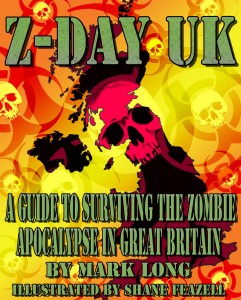 1. Have you always wanted to be a published author?
1. Have you always wanted to be a published author?
The plan when I was younger was always that I should be a doctor. I got sidetracked and that has probably contributed more to the health of the nation than can be imagined.
I have always wanted to write though. I have loved reading since I was old enough to read unassisted and I read voraciously and whenever I can. I read a lot of SF and fantasy when I was younger and I still do. I felt that I could create my own stories, set out a world that felt right to me. I am sure that you have heard people say “The pictures were better in the book” after seeing a movie. The images inside our heads are always just how we want them to be. Well, I suppose that I was the same with other people’s books. I wrote short stories initially but people kept asking “But what happens next?” Well, nothing did because it was a short story. That was what made me decide to write full length books. A few of my short stories had made it into audio books but there is not much of a market for them sadly. I think that the short story is a creature all of its own with an economy of expression and… well, I am getting off topic. Full length books can be published and it seemed like the next logical step. I wanted people to share my ideas and agree or disagree with them as they saw fit.
2. What is your book about?
The easy answer is that it is about living. It is a guide to surviving the Zombie Apocalypse in Great Britain. It is, if you will, a non-fiction book set in a fictional universe because, to the best of our knowledge, there are no actual zombies. The book is about the realities of staying alive in a very changed England and the decisions that a leader would have to make. It has been classed as survival horror fiction although the tone is as matter of fact as possible. I tried to use the voice of a slightly crusty ex-military man. I will leave it to the reader to decide how well that worked.
3. Where did you get the inspiration for your book?
Without going into detail, my day to day work involves a lot of risk assessment and threat mitigation planning. It could be said that I consider the worst case scenario for a living. The ultimate worst case scenario is the collapse of civilisation, the loss of everyone we know and no hope of rescue. You would have to survive on your wits and on what you could find. The Zombie Apocalypse is a perfect model for thinking about what you would do if everything went horribly wrong. I ended up thinking about it as I walked down the street or shopped in B&Q and so on. I found myself discussing the ideas with like minded friends. From there, a book seemed like the next logical stage.
4. What is the best thing about writing for you personally?
I very much enjoy being in a different place mentally – I get that to a degree when I read but the immersion is much more complete when I write.
5. What did you find most difficult when writing your book?
That is an excellent question, with this book; the tricky bit was knowing when I had finished. With a guide, there is always more that you can put in. It is not like a normal fiction book where you have plot arcs and character arcs and if those are satisfied and it reads well and your editor is OK with the text then the book is probably done.
6. What do you remember most about the writing process?
Compared to other things that I have written, I was astonished at how quickly the text came together. I ended up waiting quite a while for the artwork though and that was more than a little frustrating. Shane (my illustrator) does some excellent work but he seems to agree with the Douglas Adams’ quote: “I love deadlines. I especially like the whooshing noise that they make as they go by.”
7. What have you learned about writing?
Sometimes the words do not flow as naturally as you would like. Sometimes you know that you need to get from point A to point B in the writing. It is those times when a game of Windows solitaire seems incredibly appealing. It is at that point that you have to focus. You might go back and do some editing. You might write rough notes on a later chapter. Whatever writing you do, the bit that would not flow will either work now or you will know why it doesn’t work. Solitaire won’t do that for you.
8. Are you planning to write another book now?
Actually, this was my third book. It is just the first that I actually finished writing. My first was a fantasy for the young adult market and the second was a religious satire. That second idea might seem a strange one as I am sure that religious satire is not a growth area although fortunately the worst that we have to face in this time and place is critical reviews and those stop far short of being burned at the stake. The idea just came to me when I was trying my hand at the NaNoWriMo challenge. Well, the idea was to write the book in a month and I failed miserably at that because it is over five years since I started but I think with the experience that I now have that I can return to that and make it work. However, the next project is a US version of the book called Z-day Pacific North West. I have already started that.
9. Do you have any tips for other writers?
Oh yes, several. How much space do I have?
When you don’t know how to proceed, just write it anyway. You can always revise it. You will almost certainly revise everything that you have written at some point, possibly multiple times. If you stop then the book is never finished. If you skip over that bit, there is a hole and it affects your later writing. Even if you are only writing a skeleton of the chapter that is giving you trouble, it is better than a void. You will worry at the bones and an idea will come but only if you have got something on the page that you can work on.
No book will please every reader. Write something that you enjoy because there will be other people out there who like the same and at the very worst, you will have had fun.
Keep a copy of a book by an author that you think writes really badly on hand. Whenever you think that you are not good enough, read a little of their book until you know that you can write better prose and better characters than that. It would be unfair of me to name the author that I use so I will just give his initials: DB. I know that he is richer than I will ever be but I can look myself in the mirror.
What matters to readers are characters and plots. Settings are nice. Writing style only matters to a reader if it is so bad that they notice it. If you can make a story compelling with a cast that people care about, they will forgive almost anything else.
Writing is not about the money. It is about needing to write. There are fine books that were written to put food on the table but most authors are doing well if it is a nice supplement to their income. As long as you enjoy writing and someone, somewhere enjoyed reading it then that is the point.
Everything takes longer and costs more. It is just the way that the universe is.




